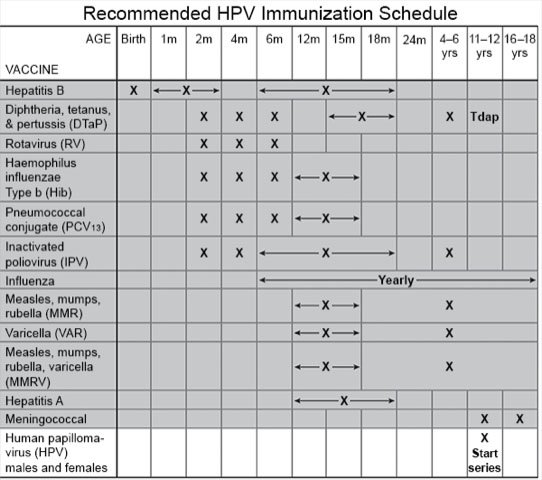HPV (Human Papillomavirus)
Medically reviewed by Drugs.com. Last updated on Sep 23, 2025.
What is human papillomavirus (HPV)?
HPV is the name for a group of viruses that can infect your skin or other parts of your body. HPV is the most common infection spread by sexual contact. It can also be spread from mother to baby during childbirth.
What are the symptoms of HPV?
- Painless warts on your skin, in your mouth, or on your genitals
- Genital or anal discharge, bleeding, itching, or pain
- Pain when you urinate
How is HPV diagnosed?
Your healthcare provider may examine your genitals or anus to help diagnose HPV genital warts. Females 30 to 65 years old can be checked for HPV during regular cervical cancer screenings. An HPV test checks for certain types of HPV that can cause changes in cervical cells. Without treatment, the changed cells can become cancer. An HPV test can be done every 5 years if the results show no infection. The test can be done with or without a Pap smear. A Pap smear checks for cancer or for abnormal cells that can become cancer. You may be tested for HPV if you have mouth or throat cancer.
What treatment may be needed?
HPV cannot be cured, but an infection may go away on its own in about 2 years without causing problems. If the infection continues, some types of HPV can lead to health conditions that need to be treated. Examples include warts and certain cancers, especially squamous cell carcinoma (SCC). HPV-linked SCCs commonly develop in the anus, throat (called oropharyngeal cancer), cervix, vagina, penis, or mouth. HPV can also cause a type of cervical cancer called adenocarcinoma. Symptoms of any of these conditions may not develop for several years after you were exposed to HPV. You will need to be monitored closely. Ask your healthcare provider for more information about monitoring, conditions caused by HPV, and available treatments.
Treatment options
The following list of medications are related to or used in the treatment of this condition.
- Aldara
- measles virus vaccine/mumps virus vaccine/rubella virus vaccine/varicella virus vaccine
- imiquimod
- ProQuad
- Rotarix
How can I prevent an HPV infection?
HPV is usually spread through sexual activity. The following can help prevent infection:
- Ask about the HPV vaccine. The HPV vaccine is given to females and males, usually at 11 or 12 years of age. It can be given from 9 years through 45 years of age, if needed. It is most effective if given before sexual activity begins.

- Use a new condom, contraceptive barrier, or dental dam each time you have sex. This includes oral, vaginal, and anal sex. Talk to your healthcare provider if you have any questions about what to use or how to use it.
When should I call my doctor?
- You have new or worsening symptoms.
- You have questions or concerns about your condition or care.
Care Agreement
You have the right to help plan your care. Learn about your health condition and how it may be treated. Discuss treatment options with your healthcare providers to decide what care you want to receive. You always have the right to refuse treatment. The above information is an educational aid only. It is not intended as medical advice for individual conditions or treatments. Talk to your doctor, nurse or pharmacist before following any medical regimen to see if it is safe and effective for you.© Copyright Merative 2025 Information is for End User's use only and may not be sold, redistributed or otherwise used for commercial purposes.
Learn more about HPV
Treatment options
- Medications for Human Papilloma Virus
- Medications for Infection
- Medications for Vaccination and Prophylaxis
Care guides
- HPV (Human Papillomavirus) Vaccine for Adolescents
- HPV (Human Papillomavirus) Vaccine for Adults
- HPV (Human Papillomavirus) Vaccine for Children
- Plantar Wart
- Rotavirus Vaccine
Symptoms and treatments
Medicine.com guides (external)
Further information
Always consult your healthcare provider to ensure the information displayed on this page applies to your personal circumstances.
